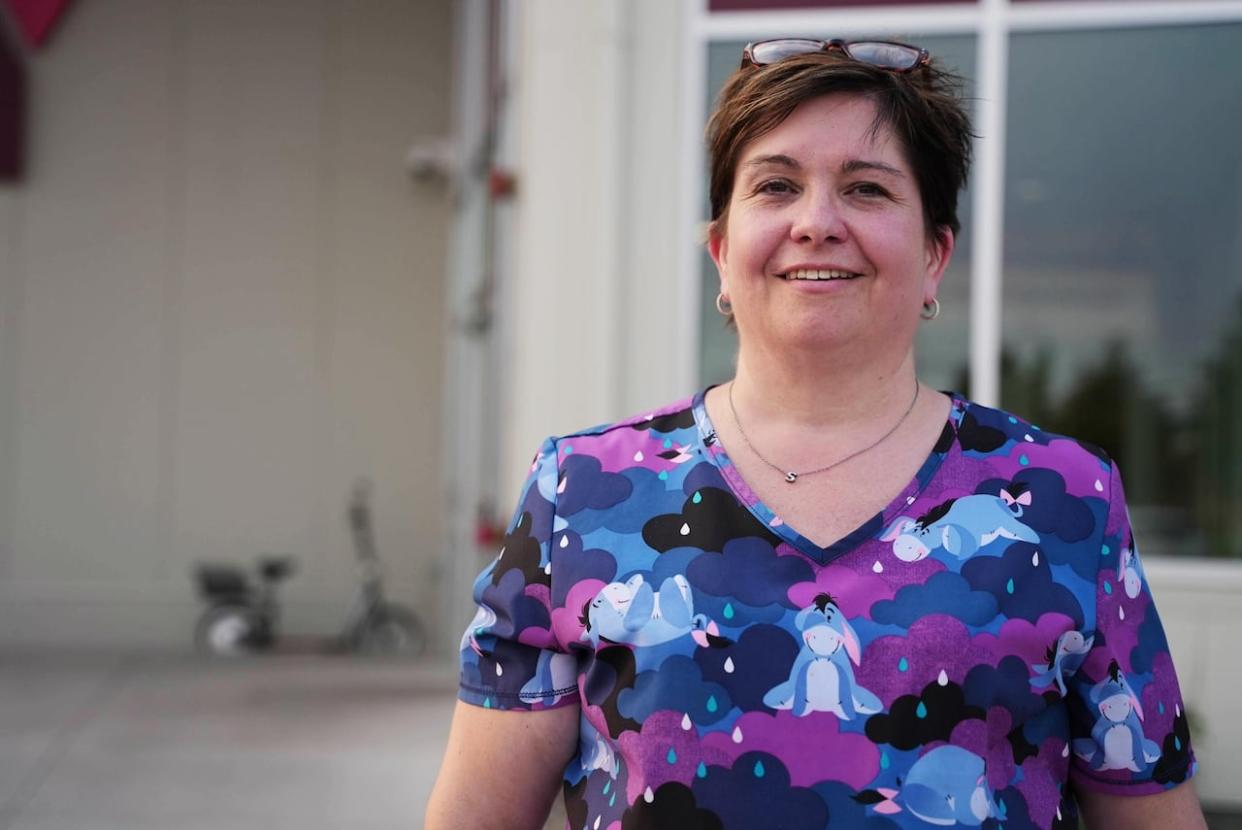It will take time for life to return to normal, says Churchill Falls resident who was evacuated twice

After two weeks and raging fires, the evacuation order over Churchill Falls has been lifted, permitting people to return home — with one resident acknowledging that normal life may not come back for a while.
The central Labrador town made the announcement on Wednesday evening, two weeks after forest fires triggered an evacuation order.
Susan Chislett was among the 750 who got the evacuation notice on June 19 but a few days later she was called back as an essential worker to help keep the town running.
She was evacuated once more on June 25, when a full evacuation order was applied to all remaining skeleton staff.
Wednesday was a typical day at work, said Chislett, with staff preparing meals and washing dishes for those still on-site, when their phones started ringing with text messages telling them the evacuation order had been lifted.
"It was actually amazing to see the faces of the people who got the text messages and the feeling that that was in the room at that moment when the text messages came in. It was so uplifting and powerful," she told CBC News.
In the next few days her family will be able to join her, something she's excited about.
For many people, the developments mean they will be able to reunite with family members who stayed in Churchill Falls to work on-site at one of North America's largest power plants.
"And just to know that we have a home, we have all the things that we've ever worked for still the way we left them the very first day that we were evacuated," said Chislett.
The sound of the streets
Chislett said she's looking forward to being around people again as well as the sound of children in the streets.
"I think in the near future, there's going to be a lot of gatherings and trying to just enjoy each other's company and enjoying what we have right now in front of us."
She said the most difficult part of the past few weeks — as fires were on the town's doorsteps — was the lack of information.
"It's not so much about the materialistic things that we have in our homes that could have been wiped out," she said. "One day you have a job and a home and a place for your family to be safe. And then you're driving away from it, not knowing where you're going."
Chislett anticipates it will take time for things to get back to normal in the town but with the Newfoundland and Labrador Hydro and the community's support, it will happen.
"And we'll do it with a smile on our faces and full hearts."
Perry Trimper, the MHA for Lake Melville district, said Thursday the evacuation order is giving people a feeling of relief.
"Their homes. Their property. Their personal effects, their memories — are all intact. That is a great relief," he said.
The company town is a small community and they are like a tight-knit family, Trimper said, and people are excited to see one another again.
Change in fire status
According to the province's online fire dashboard, there are nine fires in Labrador on Thursday.
The two fires nearest Churchill Falls have recently been downgraded in status, with the Twin Falls fire now being under control and the Mount Hyde Lake fire listed as being held.
Provincial forest fire duty officer Laurie Holloway said the decision to lift the evacuation order was made in part because of the work done to suppress the fires as well as help they got from Mother Nature.
"We feel that now with the suppression action and the committed resources, that the fire is not likely to spread beyond the existing boundary that's there right now," Holloway told Labrador Morning Thursday.
She said work on the fire break around the town is still underway and fire suppression efforts are ongoing.
"We still have ground work to do and we'll be working very hard there over the next few days to put out all these hot spots that we find," said Holloway.
Download our free CBC News app to sign up for push alerts for CBC Newfoundland and Labrador. Click here to visit our landing page.

 Yahoo News
Yahoo News 
